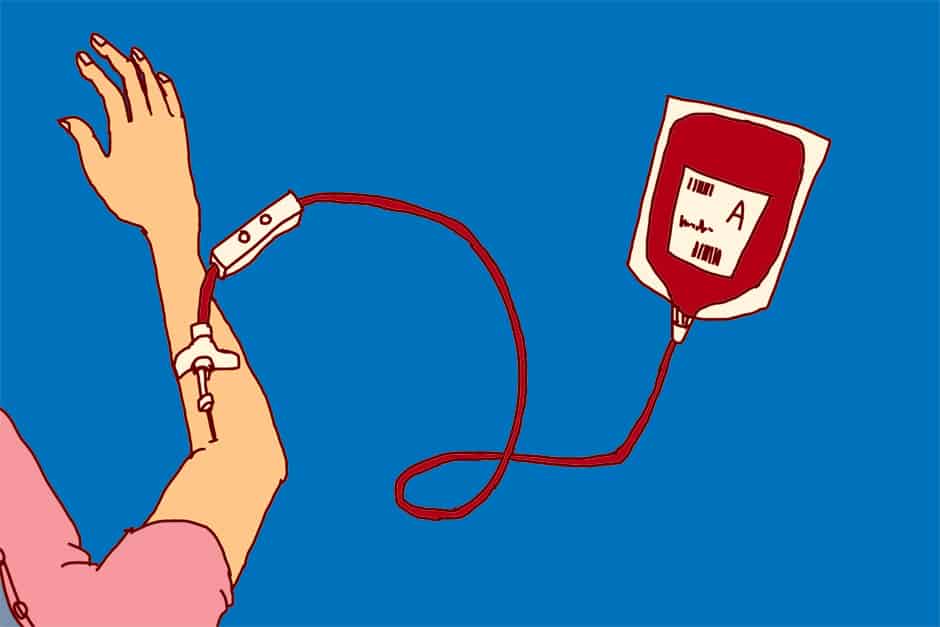As Canadian Blood Services’ blood inventory reaches critical lows, the Young Liberals of Canada — the youth wing of the Liberal Party — is calling for an end to the blood donor ban on men who have sex with men (MSM).
Currently, MSM are banned from donating blood if they have engaged in “MSM activity” in the last five years because they are seen as a group at high risk for HIV infection.
According to a report from the Public Health Agency of Canada, MSM make up approximately 47 per cent of new HIV infections. Approximately 71,300 Canadians are living with HIV. Of those, around 53,000 are aware of their status.
The Young Liberals support behaviour-based screening of blood donors, but argue that questions regarding sexual orientation should be left out of the process. They say that other countries have ended such policies without harmful effects.
“Its not a public safety issue, that argument is not correct,” said Kaleem Hawa, president of the University of Toronto Liberals.
“All blood donations are scanned for disease regardless. So it doesn’t actually matter if you are a gay man or not,” he added.
MAKING THE RULES
Canadian Blood Services and Hema-Quebec are the non-profit organizations that manage the country’s blood supply and screen potential donors. In order to “make sure every donation is safe,” the screening questionnaire asks people about their sexual practices. Every single donation is then tested for infectious diseases.
Though the government maintains what they call an “arm’s length” relationship with these organizations, Health Canada ultimately sets the rules the organizations have to follow, and the federal agency’s approval is required for any operational change.
In May 2013, Health Canada approved a change in the blood donor deferral period for MSM from a lifetime to five years since last engaging in MSM actvity.
Hawa joins many who say that change did not go far enough. “It is a way for the government to save face and say ‘We’ve liberalized our donation policy — gay people can donate blood.’ But the reality doesn’t reflect the principles that the government has stood on,” he said.
SUPPLY AND DEMAND
In September, Canadian Blood Services announced that the country’s blood supply was “critically low.”
“In recent months extremely low attendance at blood donor clinics across Canada in combination with the constant need for blood has caused the national inventory to be used faster than it can be replenished. This has created the lowest national blood inventory since 2008,” said the Canadian Blood Services’ statement.
According to the Young Liberals, some 52 per cent of Canadians have required donor blood for medical treatment. Hawa argues that the ban is not only wrong in terms of equality, but that from a utilitarian perspective it is “also one that does harm to us as a society.”
“If the government were to liberalize their policy on gay individuals donating blood, you would see a significant increase in that supply,” said Hawa, adding: “There are people who want to donate blood who are not being given the opportunity to.”
“HOW IS THAT SUPPOSED TO MAKE ME FEEL?”
Franklin* said he attempted to give blood when he was in high school. He was in a monogamous relationship at the time and would have been accepted as a donor based on all other safe sex criteria. However, he was rejected solely on the fact that he had a same sex partner.
“After filling out the questionnaire you meet with a rep. They asked me if that answer was a mistake, and when I said it was not, they told me they could not accept my blood,” said Franklin.
“They still wanted me to encourage my friends and family to donate. It really pissed me off. Why should I help you after that? How is that supposed to make me feel?” he added.
Franklin said that when a blood drive came to his school later that year, some of his friends refused to donate in protest at his exclusion. “I am aware that they are at an all-time low, but if they truly wanted to they could change that,” he said.
“The blood services in Canada are supposed to be independent, and if they pushed for this and made a case for change I believe it would happen,” Franklin added.
A QUESTION OF SAFETY?
Dr. Brian Cornelson, assistant professor in the Department of Family and Community Medicine, said the ban is a holdover from decades ago. “I think this started in the days when there was so much that was unknown and, not surprisingly, a lot of fear,” said Cornelson, adding: “There was fear that a lot of gay men weren’t being tested and wouldn’t know their status, or would be infected after their last test.”
Cornelson noted that tests available in the 1980s could take up to 12 weeks from the time of infection to find a positive result. “Back in the mid-80s when the rule was established there was arguably a rationale for it,” he said.
But Cornelson feels that times have changed and says that the gay community’s experience with HIV could even be a point in favour of allowing them to be blood donors. “Gay men are arguably the most sensitized to the risk of being HIV infected, and [are] therefore more likely to get tested than the average heterosexual having casual sex,” he said.
This is in line with Health Canada’s own findings. In a 2011 report, they estimated that 20 to 24 per cent of HIV positive MSM were unaware of their HIV status. They also found that “there was a much higher proportion of people who were unaware of their HIV infection [34 per cent] in the heterosexual exposure category.”
“Canadian Blood Services is always desperate for donors. Arbitrarily ruling out an entire population is, in my opinion, a hysterical knee-jerk reaction to the damnation of the Canadian Red Cross for mishandling the situation in the ’80s,” Cornelson said.
*Name changed at student’s request.


